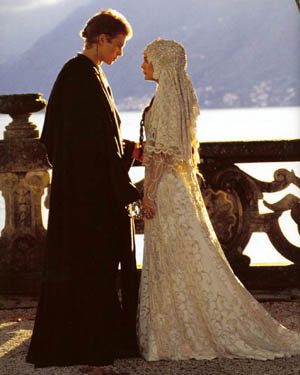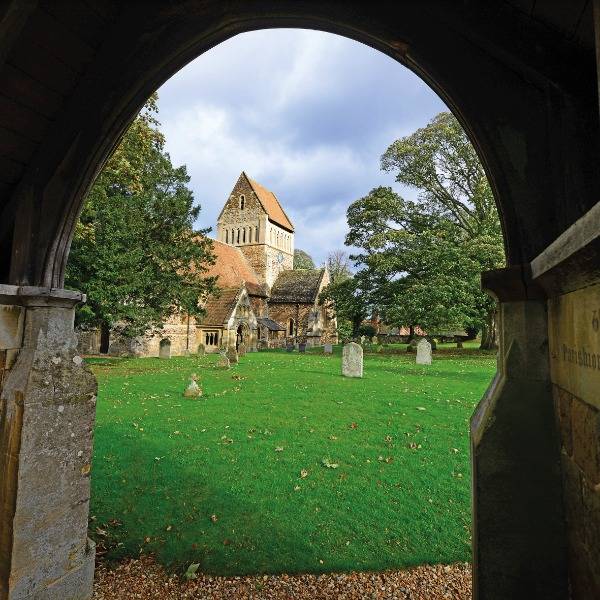
Your wedding day should be one of the best days of your life. It seems only logical that the happy day should reflect what you as a couple stand for: your beliefs, the way you want to celebrate your union and who you want to share it with.
If you value religious tradition, you can opt for a church wedding with all the hymns, prayers and blessings you feel will guarantee the optimal start to your married life. But if you do not think that an Almighty’s watchful eye is needed to sanctify your union, you have little choice.
Currently, only authorised religious or civil officials are allowed to perform marriage ceremonies in England and Wales. This means that if you want a non-religious wedding, the only option is to have a short ceremony at your local registrar’s office, or hire a licensed venue with a registrar present. So, if you do not want to have your ceremony in a registry office, the cost will be high as the average price of venue hire is £2,763. If you want a humanist wedding, you’re welcome to have that ceremony, but you’ll need to have another one in a registry office to make your marriage legal.
Outside of England and Wales, humanist weddings are legally recognised in quite a few places, including Australia, Norway and some states of the USA. Humanist ceremonies have also been allowed in Scotland since 2005, and are hugely popular – around 2,500 humanist weddings are held yearly, which makes these ceremonies the third most popular option for couples, ahead of for example Catholic ceremonies.
Humanist ceremonies are very personal, as there are no official or traditional requirements (besides the ‘I dos’). So, your ceremony will be as you see fit for your special day. Humanist weddings can also be held anywhere as long as a certified celebrant is present. This clearly cuts the cost of the ceremony enormously, and also opens the opportunity of having complete outdoor weddings for those brave enough to gamble on the weather.
More affordable and personal weddings available for anyone who wants them. This sounds like a pretty reasonable idea – so why aren’t humanist weddings allowed in England and Wales? There have been proposals for introducing them – in April this year a group of cross-party MPs tabled an amendment to the Marriage Bill (i.e. the same-sex marriage legislation) which, if passed, would legalise humanist ceremonies.
Until yesterday, it looked as though the amendment would be supported by ministers. For example, the Justice minister Helen Grant commented: “The inability to hold legally valid humanist marriages in England and Wales, including the option of holding marriages outdoors, is one of several issues that merit further consideration.” But today the British Humanist Association (BHA) reported that the amendment will be opposed by the government when it is debated in the House of Commons next week. Andrew Copson, Chief Executive of the BHA, commented on the opposition to the amendment:
“This message from the Government is a complete surprise to us and contradicts much of what they have told us in the many weeks we have been engaging with them. The amendment to give legal recognition to humanist marriages is supported by MPs from all three main parties, is not at all controversial, meets a genuine public desire, and has a negative effect on absolutely no one in society. It is more strictly and narrowly worded than even existing marriage law in order to introduce humanist marriage alone, and can have no unintended consequences.”
So why does the government oppose such a simple change? It seems that there are some existing concerns, especially among the Conservatives, that opening the door to humanist ceremonies would mean paving the way for all sorts of ‘ridiculous’ sects and ceremonies; Pagans and Jedis topping the ridiculous chart. Such developments would, as reportedly stated by government sources, “undermine and dilute the institution of marriage”.
The ‘ridiculous sects’ argument seems, well, ridiculous. The amendment wording is fairly straightforward in limiting the right to solemnize marriages to “registered charities principally concerned with advancing or practising the non-religious belief known as humanism”. So it would not allow any other types of weddings.
Even if such an allowance made it easier for Wiccas, Satanists or Pastafarians to claim a similar right, is perceived ridiculousness really a danger to the whole institution of marriage? ‘Traditional’ church weddings are not exactly devoid of silliness for non-believer. Prayers, sermons, the throwing of rice at the happy couple, not to mention the creepy purity/virginity symbolism of the white dress and veil – none of these things feel like a particularly rational or personal way to celebrate the love of two people. But, nobody is trying to stop people from having these ceremonies, even if they are silly. If you find dressing up in a Jedi robe for your big day ridiculous, please do not feel like you should.
Besides the fear of wand-wielding or pasta-straining wedding guests, the main problem with the humanist marriage amendment might actually be its inclusion within the same sex-marriage legislation. According to a government source, there are concerns that adding such an amendment on to an already divisive Bill may prove too problematic.
Nevertheless, there is such demand for humanist ceremonies that future proposals ought to not be opposed. In other countries, introducing humanist weddings has not led to a flood of fringe sects demanding wedding rights, but to what humanist ceremonies stand for: weddings that best fit the way in which you want to celebrate your love.

